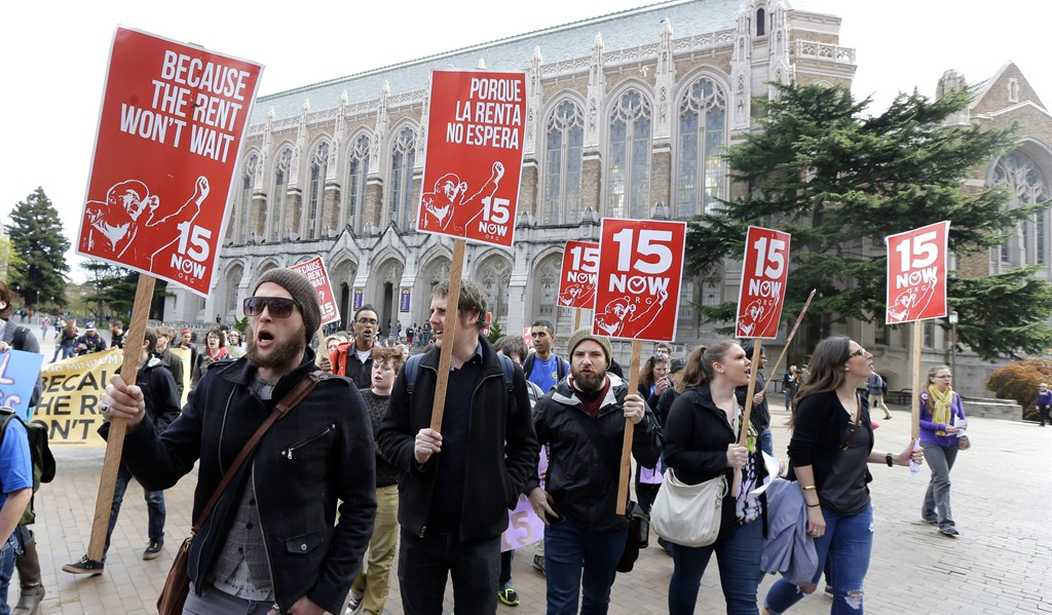Seattle has become the go-to citation for how bad minimum wage hikes are concerning policy. It’s only led to fewer job opportunities, fewer hours worked, and less take home pay for workers. The city passed a phased in minimum wage hike that was to be implemented over a four-year period in 2014. A study from the University of Washington threw cold water on its economic impact, which prompted the mayor’s office to contact Berkeley to publish a report that was supportive of the measure a week before the UW study dropped. Even USA Today’s editorial board warned that we should take notice of Seattle’s minimum wage experiment and its detrimental impact it has had on its workforce. Now, The Washington Post is saying that the UW study deserves a “careful reading.” It was a reaction to the minimum wage hike drama across the river in Maryland, where Montgomery County discovered that they would lose 47,000 jobs by 2022 if they increased it $15/hour:
According to the 146-page report by Philadelphia-based consulting group PFM, the proposed higher wage would indeed yield benefits for low-wage workers who received it, in the form of reduced stress, greater food security and better mental health. Employers, in turn, could benefit from their workers’ improved morale, in the form of higher productivity. However, there would be offsetting costs and they could be substantial: a loss of almost 47,000 jobs and $396.5 million in total income by 2022, due to workers’ being priced out of the job market by the higher minimum wage. This would spell a reduction of nearly $41 million in expected county tax revenue between fiscal 2018 and fiscal 2022; meanwhile, the county government’s payroll costs would go up $10 million.
The results of similar experiments elsewhere in the country should also give boosters of $15 per hour in Montgomery more pause than it apparently does. A team of economists at the University of Washington recently found that low-income workers across all businesses in Seattle lost an average of $125 a month because of reduced hours or job loss after that city enacted a $15 minimum. No doubt the PFM study can, and will, be attacked on the basis that it was produced at Mr. Leggett’s [Montgomery County Executive Isiah Leggett]request. No doubt, too, a different study of Seattle restaurant workers by a University of California at Berkeley team found much more benign results from the city’s mandated wage hike. But the existence of so much controversy over the real-world impact of previously untried minimum-wage levels suggests that it’s better to proceed cautiously, especially because the risks of error would be borne by the very workers the policy intends to help. At the least, $15-an-hour advocates owe the new report a careful reading and a respectful response.
Recommended
In New York, they caught minimum wage hike fever, which has led to 1,000 fewer restaurants, fewer jobs, fewer hours, and less pay. All over the result is the same: workers being screwed over. It’s bad policy. Moreover, all it’s doing is accelerating the rate at which brick and mortar establishments replace minimum wage workers with robots.

























Join the conversation as a VIP Member